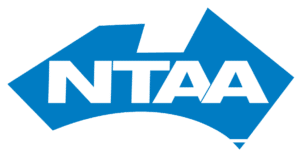Business restructuring
A business restructure involves making significant changes to the organization, operations, or financial structure of a company. This is often in response to significant financial pressures, operational inefficiencies, strategic shifts, or changing market conditions. The primary objective is to make the business more profitable or efficient or to position it for future growth. Business restructuring tax-efficiently can have significant financial implications, positively impacting a small business’s bottom line. By optimising the tax liabilities, a small business can retain more of its earnings and improve its financial health. This tax optimization is particularly crucial during a small business restructuring phase when liquidity might be constrained, and there are significant financial pressures.

How to be eligible for small business structure rollover?
The Small Business Restructure Rollover (SBRR) provides eligible small businesses with the opportunity to transfer active assets from one entity to another without incurring immediate income tax or capital gains tax liabilities. This rollover is particularly useful for businesses that wish to change their operating structure for various reasons (e.g., risk management, succession planning, or scaling) without facing the tax consequences typically associated with asset transfers.

To be eligible for the Small Business Restructure Rollover, a business generally needs to meet certain conditions:
Eligible Entity
Both the transferring entity and the receiving entity must be residents of the same country. This rollover provision is typically for domestic restructuring, not international.
Active Asset Test
The assets being transferred must be active assets of the business. This means they must be used or held ready for use in the course of carrying out a business.
Small Business Entity
The entity transferring the assets typically needs to be a small business entity for the relevant income year. A small business entity is a business with an aggregated turnover less than $10 million.
Common business structure changes
Businesses may change their structure for various reasons, including tax efficiency, risk management, growth, or adapting to new circumstances. Some common types of business structure changes include:
- Transfer assets to a company from sole traders, trusts or partners Division 122
- Bring multiple entities under a single holding company by the use of an interposed holding company Division 615
- Bring multiple entities under a single holding company by the use of an interposed holding company Division 615
- A fixed trust transfers one or more assets to another fixed trust subdivision 126-G
- Shareholders exchange shares in the target company for shares in the acquiring company Subdivision 124-M

How changing your business structure can affect your tax obligations and registrations?

Changing your business structure can influence various aspects of your tax obligations and registrations. Here’s a succinct overview:
- Tax Rates: Different structures are taxed at varied rates. For example, corporations might pay corporate tax, while sole proprietorships are usually taxed based on the owner’s personal income.
- Capital Gains Tax (CGT): Restructuring can trigger CGT events, especially if assets are transferred. Some jurisdictions might offer concessions to reduce the CGT impact.
- GST Implications: Asset transfers during restructuring might incur GST charges. Additionally, reporting and payment methods for these taxes could change.
- Tax Registrations: A change might necessitate new tax registrations, licenses, or permits.
- Employment Taxes: With a new structure, obligations related to employee taxes, social security, and other deductions might vary.
- Benefit Deductions: Rules for deductions like health insurance or retirement plans could differ based on the structure.
- Tax Losses and franking credits: Some structures may not permit the transfer of past tax losses or franking credits to the new entity.
- Asset Depreciation*: Depreciation rules can vary, affecting taxable income.
- Distribution Tax Implications: How a business distributes profits (e.g., dividends for corporations) and how these distributions are taxed can change.
- Record-Keeping: Reporting requirements may become more or less stringent based on the new structure.
- State and Local Taxes: Different structures might influence obligations for state and local taxes.
- Liability and Risk: A change in liability protection can indirectly influence tax strategies.
How we can help you?
Given the complexity of these considerations and the potential for significant financial impact, businesses should engage tax professionals with expertise in business restructuring. This ensures that the restructuring not only addresses operational and strategic objectives but also optimises tax liabilities.
MNY advisory team assists our clients to ensure that business restructures are successful, tax-effective and strategically aligned with clients’ objectives.
Strategic Analysis
As Accountants, we provide insights into whether a restructuring is beneficial from a financial perspective.
Tax Efficiency
Our advisors recommend strategies to minimise income tax liabilities, take advantage of tax concessions including the potential capital gains tax liabilities that are effectively exempted or deferred, and ensure that the new structure is tax-effective.
State and local taxes
The MNY team operates from multiple cities across Australia. We specialize in guiding clients on state and local taxation, encompassing payroll tax, duties, and land tax. Altering your business structure can influence your state and local tax liabilities. Our experts seamlessly merge business structural planning with state and local tax considerations.



